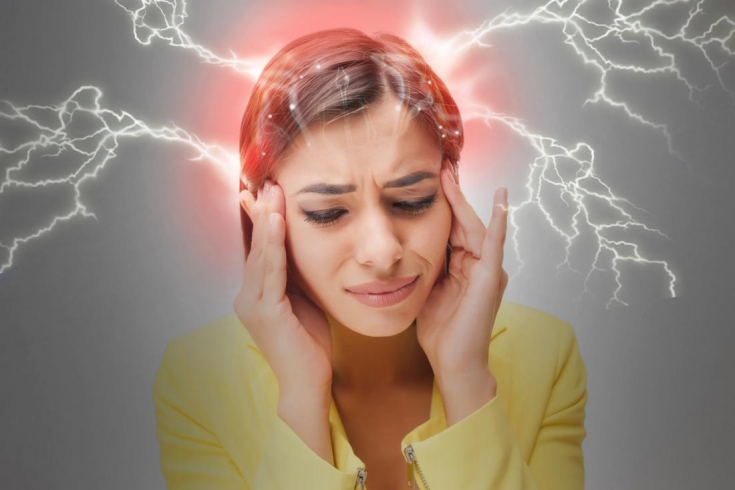Efficiency of oral contraceptives today is an absolutely confirmed fact. This is one of the most popular and widely used methods contraception. In the US alone, more than 12 million women annually use oral contraceptives to prevent unplanned pregnancies. When taken regularly and correctly, birth control pills are a very effective method of birth control.
At the same time, every year about 8% of women face the problem of unwanted pregnancy, despite taking oral contraceptives. Often, this happens if a woman takes a pill at the wrong time or forgets to take it. If the drug is taken in accordance with the recommendations of the doctor, every day at the indicated time, only one in 100 women may experience a similar problem.
The main positive effects of oral contraceptives
There are two types of oral contraceptives. Each of them contains in its composition the synthetic hormones estrogen and progesterone. The first type, combined oral contraceptives, contain both hormones: both estrogen and progesterone. The second type, the so-called "mini pills", contains only progestin.
In addition to preventing unwanted pregnancy, oral contraceptives are widely used to correct many pathological conditions in gynecology, such as:
- Menorrhagia
- Dysmenorrhea
- Endometriosis
- Premenstrual Syndrome and Premenstrual Dysphoric Disorder
- Acne, hirsutism and alopecia
- Reduce the risk of cysts, pelvic inflammatory disease, and ectopic pregnancy.
The effect of oral contraceptives on the occurrence of ovarian cancer and endometrial cancer, namely, on the prevention of the development of these diseases, has also been proven.
It must be remembered that oral contraceptives are absolutely not a means of protection against sexually transmitted diseases!

The most common side effects of oral contraceptives
Side effect 1: spotting
C intermenstrual vaginal bleeding faced by approximately 50% of women who take birth control pills. This problem often occurs during the first 3 months of taking them. In 90% of women, this problem usually resolves on its own after three months of taking oral contraceptives. During the period of bleeding, the drugs still remain effective, but only if they are taken correctly and in a timely manner. If within 5 days, with moderate blood loss, and 3 – when strong, the bleeding did not stop – the patient is advised to consult a gynecologist.
Side effect 2: Nausea
During the first month of taking birth control pills, a side effect of mild nausea may occur. However, these symptoms usually subside within one to two weeks. To solve this problem, you can try taking the pill with food during meals or just before bedtime. You should consult a doctor in case of a strong, long-term & nbsp; incessant nausea.
Did you know: From age to age: specifics of contraceptive drug choices
Side effect 3: breast tenderness
Contraceptive pills can provoke such an effect as an increase in the sensitivity of the breast, up to the appearance of unpleasant and even painful sensations. In most cases, discomfort decreases after a month of taking oral contraceptives. If the pain continues to disturb for a longer period of time, and its intensity also increases, you should seek medical advice. Reducing the intake of caffeine and salt will help reduce breast sensitivity. In addition, it is recommended to wear comfortable, non-constricting underwear.
Side effect 4: weight gain
Modern oral contraceptives, subject to their competent and individual selection, absolutely do not cause weight gain. However, recent studies show that a small percentage of women have such a manifestation as a delay in the removal of fluids from the tissues. In the event of such a side effect, it is recommended to replace one oral contraceptive with another.
Side Effect 5: Mood Changes
Some women may notice significant changes in their emotional state when using a contraceptive method such as oral contraceptives. This condition does not require medical attention. But it is very important during the selection of a contraceptive to find out if there is a history of depression in the patient. Contraceptive pills are canceled in case of severe emotional disruptions.
Side effect 6: missed pills
There are cases when, despite the competent use of the drug, a single dose of a pill for some reason was missed. All oral contraceptives come with detailed instructions, which outline the course of action in such a situation, depending on the day and the number of missed pills. An extraordinary visit to the gynecologist is also recommended for examination for pregnancy.
It is important to know: Features of the selection of oral contraceptives: what examinations need to be done
Side effect 7: decreased libido
Birth control pills can indeed negatively affect a woman's sexual desire due to their hormonal composition, and cause such a side effect as a decrease in sexual desire. However, one should take into account the fact that many others factors can contribute to a decrease in libido. If this side effect persists for a long time and negatively affects the quality of life – you should tell your doctor about it.
Side effect 8: Vaginal discharge
Some women may be concerned about the side effect of changing the discharge. It could be like an increase in their total number and a change in color, smell and other properties, and & nbsp; decreased secretion of vaginal lubrication during intercourse. In this case, you should consult a doctor when other symptoms join, such as itching, redness of the external genital organs, rashes, and others, which may indicate the presence of a urogenital infection.
Read more: Beauty-contraception for female beauty and health
Side effect 9: headaches
This is a fairly rare side effect. Headache is a common symptom of a huge number of diseases. If the pain is intense, has a constant, aching character, the patient should definitely contact the gynecologist who prescribed her an oral contraceptive.
Side effect 10: blurred vision
Another extremely rare side effect that requires a mandatory visit to an ophthalmologist.

Severe side effects of oral contraceptives
Extremely rarely, in isolated cases, while taking oral contraceptives, dangerous conditions can occur that require emergency medical care. You should immediately consult a doctor if you experience side effects such as:
1. Abdominal pain
2. Chest pain (difficulty breathing)
3. Severe headaches
4. Blurred/loss of vision
5. Edema / aching pain in legs
Read: How contraceptives affect the organs and systems of the body
It is strictly forbidden to take oral contraceptives without first consulting a gynecologist. Competently and, most importantly, individually selected birth control pills will help to avoid any side effect.






Add a comment